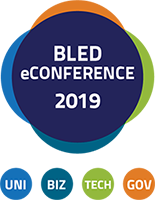In collaboration with the Faculty of Computer Science, University of Ljubljana, we are announcing a four-hour hands-on workshop on data science.
The workshop will provide an overview of basic concepts in data science with the focus on data preparation, visual analysis of data and methods of supervised machine learning. Participants will get to know basic algorithms of machine learning (classification trees, logistic regression, random forests), how to build predictive models and how to properly evaluate them. At the end, students will get a practical assignment where they will test their new skills in data science.
Attendees will get hands-on experience in using the open source software Orange that has been developed at the Faculty of Computer Science, University of Ljubljana, and it’s been ranked among top 10 open source data mining tools. Orange is designed as a visual programming platform with interactive exploratory analysis, that requires no coding and is appropriate for both beginners and advanced users. It offers machine learning and data mining tools as well as many other specialized add-ons (e.g. for text mining, network analysis, time series, image analytics and so on).
The workshop is especially appropriate for (but not limited to!) junior researchers and PhD students with basic knowledge on statistics and databases. Participants will receive printed material and instructions for Orange installation. Participants are expected to bring their own computers. The workshop can accommodate 20 participants, therefore the registration is on the first come, first serve basis. You are cordially invited to register to the workshop by sending an email to: doroteja.vidmar@um.si
The workshop will take place on Tuesday, June 18th from 14:00 till 18:00, the exact location will be announced in the programme of the conference.
About the lecturer
Ajda Pretnar is a PhD candidate at the Faculty of Arts, University of Ljubljana, and a researcher at the Faculty of Computer and Information Science, University of Ljubljana. Her research focuses on computational methods in anthropology, analysis of sensor data and teaching CS topics.
